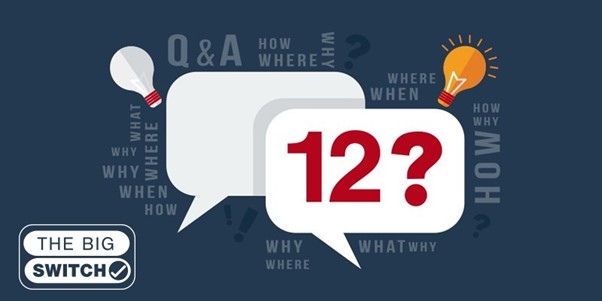12 Questions to ask when evaluating reservation systems for your hospitality business

What to consider when you’re evaluating a new online booking and table management solution – and the key questions your provider must answer.
In one episode of the cartoon South Park, the Underpant Gnomes have a plan. Step 1: Collect underpants. Step 3: Profit! As for Step 2… well, there isn’t a Step 2.
Some IT projects are a bit like that. You know that the right platform can deliver measurable improvements. You’ve got the budget you need and the green light to go ahead. Now what? It’s a good idea to make sure you have a Step 2.
Making the case for change
We know that the right IT solution will improve things. The key is to identify what those things are, and what improvements you expect to see. For example, you might want real-time table management linked to reservations so that you can accept last-minute bookings online, or via a central telephone team. Or you might want to monitor conversion rates from email marketing offers. Or you might want to analyse your EPoS data to gain a better understanding of customer behaviour and spend.
This stage is crucial, because it defines the parameters your solution needs to work within. A system that analyses online bookings but not walk-ins isn’t much help if you have significant walk-in traffic. A system that’s built for a Windows PC in the reception area may not talk to mobile devices such as iPads. A system that doesn’t include purchasing and inventory management won’t identify potential savings in those areas. And an online system that doesn’t work on users’ mobiles is an online system doomed to failure.
Conversely, you might not need to upgrade your entire organisation at once. Simply combining two technology solutions such as online reservations and EPoS might tick all the boxes at the moment, with future integration planned for the much longer term.
This stage isn’t just important in terms of the project specification. It’s also important for overcoming potential obstacles to the project success. If key stakeholders in your organisation don’t understand the reasons for change and the benefits of change, they may prove difficult to convince – and that means they could make your project much more difficult to implement.
How much change can you handle?
No two organisations are the same. Some businesses spend months planning, testing and preparing for an IT roll-out. Others complete the entire process in weeks. That isn’t a reflection of their scale, either. Some of the largest, most complex businesses have the shortest roll-outs, while small, niche businesses sometimes need much more time.
And different businesses have different requirements. For some, it’s a move to an entirely new system across the entire organisation. For others, it’s an ongoing process where systems are upgraded according to priority. You might integrate EPoS and reservations now for example, with other integrations coming later.
In practice that means any solution provider offering a cookie-cutter, one size fits all solution should be pelted with bread rolls until they leave the building. As Abraham Maslow put it back in 1966, “it is tempting, if the only tool you have is a hammer, to treat everything as if it were a nail.” In other words, technology is simply a tool to improve your business. If the provider doesn’t understand your specific business requirements, their system is unlikely to meet those requirements either now or in the future.
Twelve key questions to ask about any proposed solution
In addition to the usual questions about hardware and software compatibility, scale, uptime guarantees and timescales, there are several key questions your potential solution provider should be able to answer.
There’s a good chance that some or all of these questions are relevant to your particular circumstances, so take a moment to consider each area:
- Do you share the ownership of the data? If you part company, what happens to your stored data?
- Is there a per cover fee in addition to the monthly fee?
- Do the online components support mobile platforms such as iPhones and tablets and use responsive design to ensure they work on all kinds of devices?
- Can the system generate tailored, personalised customer communications?
- Can the table management system link to your EPoS system in order to reduce operational duplication?
- Can the system deal not just with online bookings but with walk-ins and wait lists?
- Can reservation data and EPoS data be combined to establish a clear picture of customer behaviour, preferences and spend?
- Does the online booking widget reflect real-time ability?
- Can the online booking widget take deposits and is this method PCI compliant?
- Does the system allow you to set up separate availability and menus for different day parts and days of the week?
- Is the solution completely customisable with your branding, or branded by the 3rd party provider and inflexible?
- How will your data be migrated from your existing systems?
And finally… one key question to ask about the entire project
How will all this improve your business and your offer to your customers? How could you handle discounting better, drive increased frequency, and improve guest experience? How could you capture and use data to understand and respond to customer behaviour more effectively?
In short: what is your current state, where do you want to get to, and how can technology help you get there?
Points to remember
- Always start by identifying the business need, not the technological solution.
- Set specific objectives. Improving X by 15% is clear and measurable. “Maximising efficiency” isn’t. Ensure your new platform provider is clear on your objectives, so they can help you achieve your goals.
- Think long term. Will the platform work on mobile devices, both for customers and your business? Who owns the data? Can it scale if your growth increases dramatically?
Any solution provider offering a cookie-cutter, one-size-fits all solution should be pelted with bread rolls until they leave the building.


